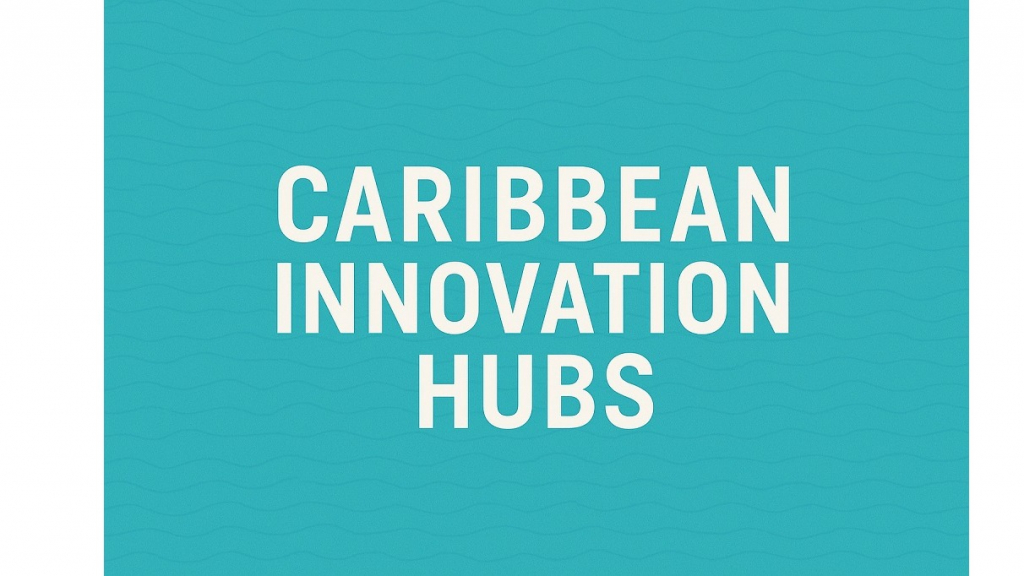In a global economy increasingly driven by technology and innovation, the Caribbean is forging its own path forward. From mobile payment platforms in Barbados to agri-tech startups in Trinidad and Tobago, the region’s innovation hubs are not only transforming local economies—they’re redefining regional trade potential across the CARICOM bloc.
This article explores how Caribbean innovation hubs are accelerating smart trade initiatives, supporting digital entrepreneurship, and building infrastructure to drive sustainable economic growth across CARICOM nations.
What Are Innovation Hubs?
Innovation hubs are ecosystems where entrepreneurs, startups, tech professionals, academia, and investors collaborate to develop and scale innovative solutions. These hubs often feature:
-
Incubators and accelerators
-
Co-working and maker spaces
-
Training and mentorship programs
-
Access to capital and global markets
In the Caribbean, innovation hubs are crucial to reducing dependency on traditional exports and embracing knowledge-based economies.
The Rise of Caribbean Tech Clusters
Across the CARICOM region, innovation hubs are springing up with a focus on local challenges and global scalability. Here are a few leading examples:
1. Barbados – The Barbados Digital Transformation Hub (BDTH)
Barbados is investing heavily in digital transformation, with the BDTH supporting startups in fintech, blockchain, and e-commerce. Initiatives like the "Smart Barbados" project aim to digitize public services and enhance e-governance.
2. Jamaica – Kingston’s Digital Innovation Hub
Backed by the Development Bank of Jamaica (DBJ), Kingston’s hub supports startups in software development, logistics, and agricultural tech. Programs like "IGNITE" have funded dozens of young entrepreneurs.
3. Trinidad & Tobago – Tamana InTech Park
Located in Wallerfield, this science and technology park houses research institutions, software development firms, and renewable energy startups. It’s a cornerstone of the country's innovation economy.
4. Suriname – The CODE Innovation Hub
Suriname’s CODE Hub focuses on digital education, cybersecurity, and the promotion of STEM fields among youth. It’s a critical driver of ICT capacity-building in the region.
How Innovation Hubs Are Powering CARICOM Trade
Innovation hubs serve as more than just startup nurseries—they’re catalysts for regional trade expansion in the following ways:
1. Enabling Digital Commerce Platforms
Platforms such as CaricomMarket.net benefit directly from regional innovation ecosystems. Local developers are creating scalable e-commerce and payment systems tailored to intra-CARICOM trade complexities, including cross-border taxes, customs integration, and currency exchange.
2. Accelerating Fintech Adoption
Countries like The Bahamas (with its Sand Dollar digital currency) and Barbados are becoming leaders in fintech, enabling smoother B2B payments and reducing reliance on legacy banking systems—critical for regional trade fluidity.
3. Agri-Tech and Food Security Solutions
Innovation hubs in Guyana and Dominica are focusing on sustainable agriculture. With advanced hydroponic systems and AI-powered yield forecasting, farmers can now predict demand in export markets and minimize post-harvest loss, improving trade viability.
4. Logistics and Supply Chain Tech
CARICOM-wide trade is hindered by logistics inefficiencies. Startups in Trinidad & Tobago and Jamaica are developing smart freight tracking, last-mile delivery systems, and AI-based inventory tools that cut costs and time.
5. Export Compliance and Documentation Tools
St. Lucia and Antigua & Barbuda have seen the rise of digital tools that automate export documentation, customs declarations, and regulatory compliance—removing major bottlenecks in cross-border trade.
Innovation Hubs: Country-by-Country Impact
Let’s break down how these hubs are helping export-rich countries collaborate more effectively with import-driven neighbors:
Export Surplus Markets
-
Trinidad & Tobago: Software services, energy tech, agri-automation
-
Barbados: Fintech solutions, digital ID systems
-
Jamaica: Creative media, logistics tech
-
Guyana: Agricultural data analytics, renewable energy tools
High-Demand Import Markets
-
St. Vincent and the Grenadines: Mobile payment infrastructure
-
Grenada: Educational technology platforms
-
Haiti: Healthcare data management solutions
-
Belize: Cybersecurity and e-commerce platforms
Regional Initiatives Fueling the Ecosystem
Several CARICOM-led and international collaborations are funding and accelerating innovation hubs:
-
Caribbean Climate Innovation Center (CCIC): Supports green and clean-tech startups.
-
Caribbean Industrial Research Institute (CARIRI): Provides R&D and commercialization support.
-
OECS Business Incubator: Nurtures SMEs with tech-enabled growth potential.
These programs not only inject funding but also connect hubs across borders to share research, mentorship, and market access.
Challenges to Address
Despite exciting progress, innovation hubs face several challenges:
-
Digital infrastructure gaps in rural and underserved areas
-
Limited venture capital and angel investor networks
-
Skills mismatch between education systems and startup requirements
-
Cross-border regulatory fragmentation
CARICOM governments and private sector stakeholders must work in sync to address these barriers through harmonized policy reforms and infrastructure upgrades.
The Future: Towards a Unified Caribbean Innovation Corridor
Imagine a fully integrated innovation corridor stretching from Belize to Suriname—where startups can collaborate without borders, trade is frictionless, and digital economies drive GDP growth.
This vision is within reach. But it requires:
-
Common digital standards and platforms
-
Enhanced trade financing for tech-driven enterprises
-
Greater support for women- and youth-led innovation
Conclusion
Innovation hubs are no longer experimental side projects. In the Caribbean, they’re at the heart of trade modernization and economic independence. As these ecosystems mature, they promise to make the CARICOM region not just a consumer of innovation—but a producer and exporter of it as well.
By investing in innovation hubs today, CARICOM is investing in a smarter, more connected, and trade-empowered tomorrow.




Share this via
Or copy link